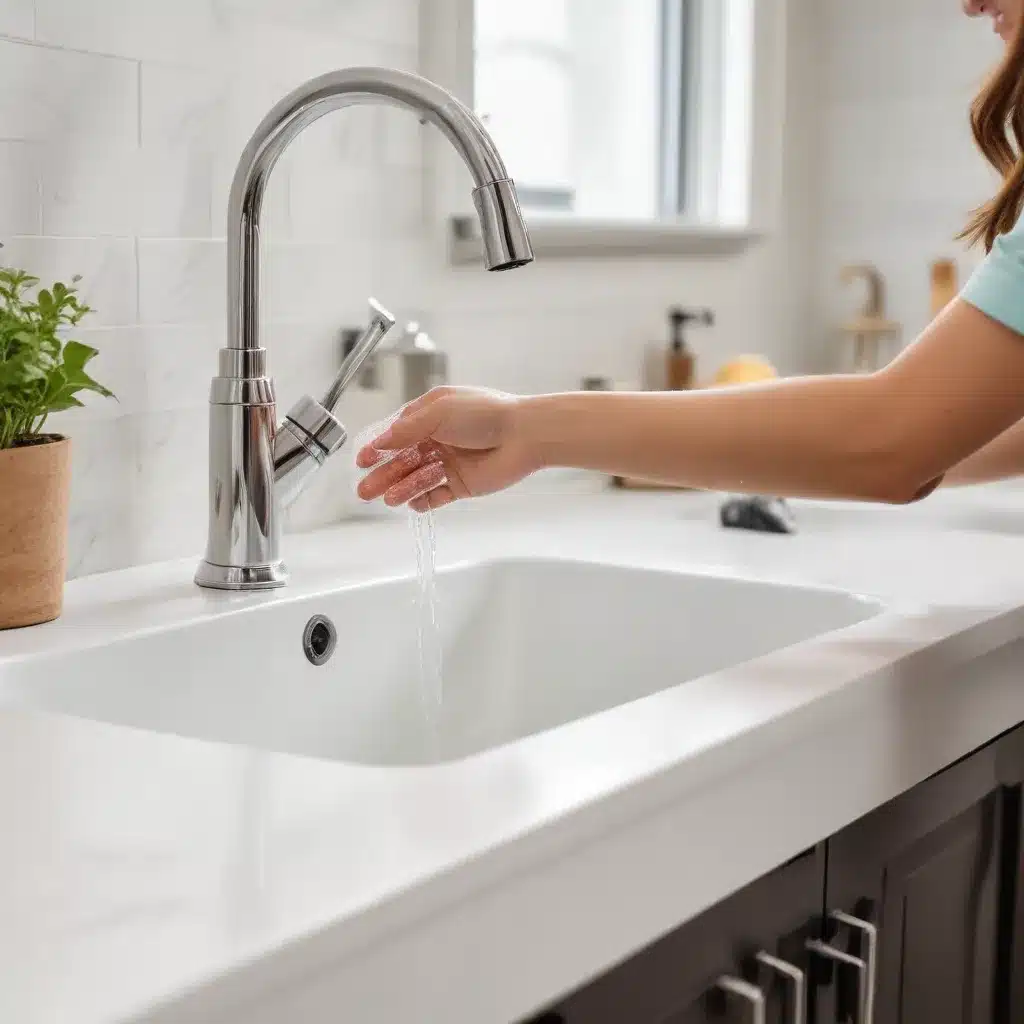
The Importance of Handwashing and Personal Hygiene
Proper handwashing and overall personal hygiene are absolutely essential in the home kitchen. Bacteria and microorganisms that can cause foodborne illness are present everywhere – even on healthy people. If these germs get transferred from your hands, body, or clothing onto food or kitchen surfaces, it can lead to the contamination and subsequent sickening of you and your loved ones.
Good personal hygiene practices not only protect your health, but they also demonstrate care and professionalism to your guests. Customers and dinner party attendees will feel much more at ease knowing the chef or home cook has taken the proper precautions. After all, no one wants to see someone handling food with visibly dirty hands or unkempt appearance.
To prevent food poisoning and maintain high standards of cleanliness, follow these critical handwashing and personal hygiene tips in the home kitchen:
Thorough, Frequent Handwashing
Washing your hands thoroughly and frequently is the single most important step in preventing the spread of harmful bacteria. Lather up with soap and warm water, scrubbing the fronts, backs, between the fingers, and under the nails for at least 20 seconds. Dry your hands completely with a clean towel or paper towels.
Be sure to wash your hands:
- Before handling any food, especially raw meat, poultry, or seafood
- After using the restroom
- After coughing, sneezing, or blowing your nose
- After touching your hair, face, or clothing
- After taking out the trash or handling pets
- Anytime your hands become visibly soiled
If soap and water aren’t readily available, use an alcohol-based hand sanitizer that contains at least 60% alcohol. However, hand sanitizers are not as effective as proper handwashing on heavily soiled hands.
Maintaining Personal Cleanliness
Beyond handwashing, there are several other personal hygiene practices to adopt in the kitchen:
Bathe or shower regularly: Ensuring your body is clean helps prevent the spread of bacteria from your skin, hair, or clothing. Aim to bathe at least a few times per week.
Wear clean clothes: Change into a fresh set of clothing, including an apron, before food preparation. Dirty or sweaty clothes can harbor all sorts of contaminants.
Trim and clean nails: Keep fingernails short and free of dirt. Bacteria can easily lurk under long nails. Use a nail brush when washing hands.
Cover cuts and sores: Any open wounds should be properly bandaged to avoid contaminating food. Wear disposable gloves if necessary.
Avoid touching your face: Try to refrain from touching your nose, mouth, or eyes while cooking, as these are common entry points for illness-causing germs.
Stay home if sick: If you are experiencing symptoms of illness like vomiting, diarrhea, or fever, do not prepare food for others. Wait at least 48 hours after your symptoms have subsided before returning to the kitchen.
Following these personal hygiene practices demonstrates your commitment to food safety and shows respect for those enjoying your culinary creations.
The Importance of a Clean Kitchen Environment
Maintaining proper personal hygiene goes hand-in-hand with keeping your kitchen environment spotlessly clean. Regularly disinfect and sanitize all surfaces, tools, and equipment that come into contact with food. This includes:
- Countertops, cutting boards, and other food prep surfaces
- Sinks, faucets, and any other plumbing fixtures
- Utensils, knives, and cookware before each use
- Refrigerators, freezers, and food storage containers
Use appropriate cleaning products like bleach solutions or commercial sanitizers labeled as “disinfectants.” Be sure to follow the manufacturer’s instructions closely for proper usage and contact times.
Additionally, keep your kitchen well-organized and free of clutter. Dirty dishes, damp towels, and other extraneous items can foster bacteria growth and cross-contamination. Designate specific areas for food prep, handwashing, and cleaning to maintain clear separation of tasks.
Applying Hygiene Practices Beyond the Kitchen
While the kitchen is the primary focus, good hygiene habits should extend to all areas of the home. Pay special attention to the bathroom, where germs from bodily functions can easily spread.
Thoroughly clean and disinfect the toilet, sink, and tub regularly. Keep hand towels and washcloths fresh, replacing them frequently. Wipe down any surfaces that may have come into contact with raw meat, poultry, or seafood during food prep.
Furthermore, maintain proper laundry hygiene by washing clothing, dish towels, and other textiles in hot water with an effective detergent. This helps kill any lingering bacteria and prevent the spread of illness-causing microbes.
By integrating comprehensive hygiene practices throughout your home, you can create a healthier, safer environment for you and your loved ones.
Establishing a Hygiene-Focused Household Culture
Promoting a culture of cleanliness and hygiene within your home is crucial. Educate family members, especially children, on the importance of handwashing, surface cleaning, and other preventative measures.
Make handwashing supplies readily available throughout the kitchen and home. Keep soap, paper towels, and hand sanitizer accessible in high-traffic areas. Hang visual reminders and instructional signage to encourage frequent, thorough handwashing.
Additionally, assign household chores and cleaning responsibilities to ensure the kitchen and other spaces are consistently maintained. Develop a regular cleaning schedule and delegate tasks appropriately.
When everyone in the household understands and embraces good hygiene habits, it becomes a natural part of the daily routine. This proactive, collaborative approach helps reduce the risk of foodborne illness and keeps your home a safe, healthy environment.
Conclusion
Proper handwashing and personal hygiene are indispensable in the home kitchen. By adhering to these practices, you can effectively prevent the spread of harmful bacteria and safeguard the health of your family and guests.
Remember, good hygiene is not just about cleanliness – it’s also about demonstrating care, professionalism, and respect. Integrate these principles into your everyday cooking and household routines, and you’ll be well on your way to becoming a true Kitchen Warrior.



